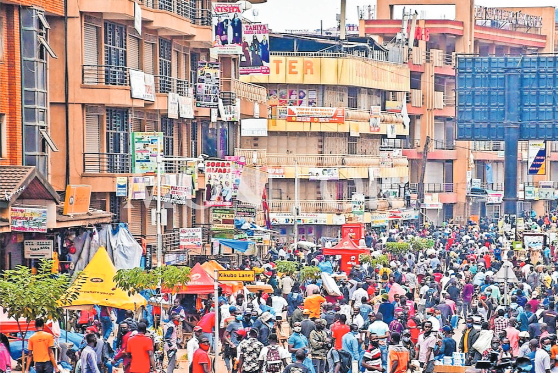Prime
Electoral Commission is acting unconstitutionally

Peter Mulira
During the presidential elections in 2016, I took my place in the que to cast my vote at our local Catholic church grounds which served as our polling station. From 8am, we waited for ballot papers which never came.
At 4pm, an electoral officer announced that those of us who wanted to cast their vote could do so the next day at a different location about a mile away.
Earlier, Joseph, a lowly employee in the electoral process well-known to me, had warned me that no ballots would be delivered to our centre because our area was considered to be anti-government.
My community is full of retired international civil servants, retired government servants and other highly respected professionals who may disagree with this or that government policy but this does not make them “anti-government.”
By denying me the right to vote, the Electoral Commission committed two constitutional offences. First, it discriminated against me on political grounds contrary to Article20(1)(2) of the Constitution. Secondly, the commission’s act is extraneous to its functions as laid out in Article 61(1) of the Constitution.
Article 61(10(a to h) sets out functions to be performed by the commission but as the ongoing presidential campaigns have shown the commission has surrendered most of these functions to the police and the army.
At the same time, the chairman of the commission is exercising powers which he does not have under the Constitution. For example, recently the chairman summoned some candidates just to warn them about their alleged disregard of “guidelines.” The Constitution does not give powers to the chairman to discipline candidates.
The only quasi-judicial powers vested in the commission are contained in Article 61(1)(f) of the Constitution, which provides that the commission shall have power “to hear and determine election complaints arising before and after polling.”
Such quasi-judicial powers are exercised formally and there must be a formal written determination because Article 64 of the Constitution gives a complainant the right of appeal to the high court against the commission’s decision.
If candidates, who complained to the commission about harassment by security forces wanted to appeal to the high court against the commission’ decision in the matter, how would they do it if there was no formal record of proceedings?
The commission is not the only body acting illegally and unconstitutionally. The police have been treating Ugandans in brutal and despicable manner and many people have been arrested during the campaign period for offences unknown to the law.
The police’s power to arrest anybody extends only to “arrestable offences.” Section 1(a) of the Police Act defines “arrestable offence” as “an offence which on conviction may be punished by a term of imprisonment of one year or more or a fine of not less than one hundred thousand shillings or both.”
In the Constitutional Court case of Muwanga Kivumbi versus the Attorney General Justice Constance Byamugisha as she then was opined:
“The police have a wide range of powers to restrict and control the actions of protesters. These powers should not be exercised by the police in an unaccountable and discriminatory manner.”
In the same case the court held that the police had no power to stop the holding of an assembly except as provided in Article 43(1)(c) of the Constitution. The right to freedom of assembly, as was said in Kivumbi’s case, is a fundamental right guaranteed in Article 29(1)(d) of the Constitution. The Electoral Commission has an onerous duty to implement Article1(4) of the Constitution which provides that: “The people shall express their will and consent on who shall govern them…through regular, free and fair elections...”




